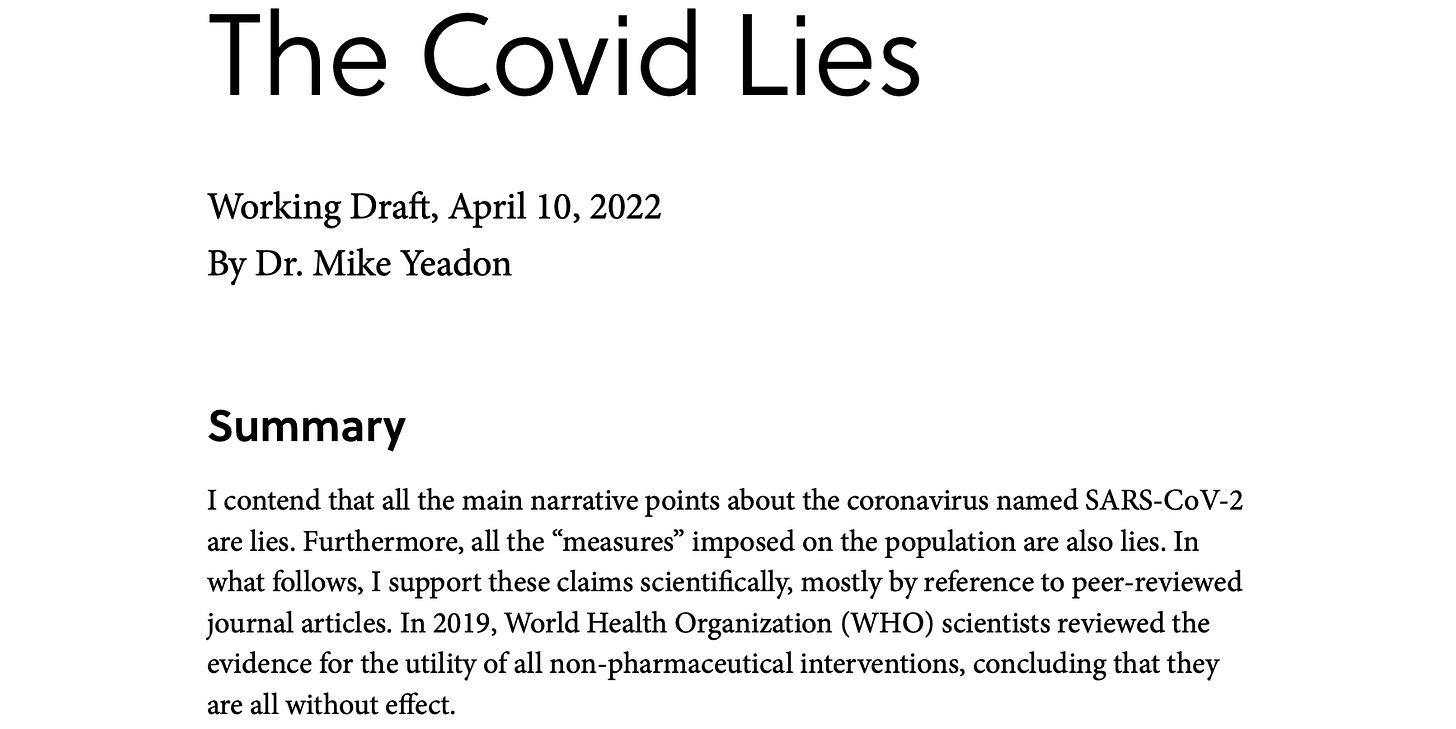Dear Church Leaders (and everyone else)
The purpose of this post is to make the case that everyone — and particularly anyone who claims to be a Christian — should care about covid.
When I say “care about covid” I mean essentially care about what happened during what we might call the covid era, i.e. 2020 and 2021.
As I see it, there are at least three reasons:
We should care about covid because it seems more than plausible that God has been trying to tell us something through what has happened — as discussed in this recent post: Has God been trying to tell us something?1
We should care about covid if we care about truth2
We should care about covid if we care about people
I wonder why anyone who claims to be a Christian would object to any of the above. For reference, I have put some brief further comments on reasons 1 and 2 in the corresponding footnotes 1 and 2.
But I find it particularly hard to fathom why anyone who claims to be a Christian would object to reason 3. And reason 3 will be the subject of this post.
We should care about covid if we care about people
In order to care about covid, it is not necessary to have a firm view as to:
the nature of covid, where it came from, and whether it even actually exists
whether we actually had a pandemic, however that might be defined
the motives of anyone involved in the covid response.
But in order to care about covid, I think it does help to remember how normal, everyday people suffered.
I post plenty of articles featuring referenced official government data and scientific research. But it is easy to forget that behind the statistics are the lived experiences of real people: grandfathers and grandmothers; fathers and mothers; brothers and sisters; sons and daughters; nephews and nieces; grandsons and granddaughters; friends and colleagues. Etc. And I hope that the somewhat different format of this article will highlight the reality of how people’s lives were affected.
Adults — and the experiences of those at the Scottish Covid Inquiry
One of the better official covid inquiries — and the bar is not high — is the Scottish Covid Inquiry, which has received little attention in the mainstream media, and not a lot of coverage in alternative media. Indeed Biologyphenom (Dave), who has been posting clips from the inquiry, has had his Twitter/X account inexplicably and permanently suspended, as noted here in last September’s Updates post.
On the plus side, this YouTube video of testimonies is still available…
…and his material is also available on this Substack…
…which is well worth a look. And much of the rest of this post will feature stills from his highlights compilation, in a format that allows the reader to scroll through at whatever pace suits, while appreciating at least a little of how some people suffered. For what is described in those pictures is but the tip of a very large iceberg.
Surely all of us — and particularly anyone who claims to be a Christian — should care about such people and how they have suffered? And does that not start with at least some public acknowledgement of what has happened and what went wrong?
Children — and the film Numb
The Scottish Covid Inquiry features mainly the testimony of adults. And so I have also included snapshots from this three-minute film Numb made in 2020 by a 15-year-old Canadian girl for a school project:
Many of the professional-managerial class who were responsible for implementing the draconian covid policies were people who were born in the 1960s, 1970s and 1980s. And there is a case to be made that, of all the times in history to have been born, those decades are hard to beat.
Of course by 2020 such people had already enjoyed their childhood and their teenage years… the opportunities to pursue hobbies, play sport, go on summer holiday camps, make friends and build relationships… to go through school, experience life at university, have a meaningful social life at work… to experience end-of-school events, graduation ceremonies, weddings, the birth of their children. Etc. Indeed in some cases they had seen their children grow up and enjoy those things too…
The film highlights the situation from those born in the 2000s who were confined to their homes for months on end during precious time in their lives that they will never get back. Many children and young people were denied so much in the name of preventing the spread of a disease from which they were at essentially zero risk. And babies and infants too, with consequences that are still unfolding, such as lockdown babies starting school unable to respond to their own name.
“Almost three quarters of teachers say ‘Covid children’ born in 2020 are struggling.”
Surely all of us — and particularly anyone who claims to be a Christian — should care about such people and how they have suffered? And does that not start with at least some public acknowledgement of what has happened and what went wrong?
And yet most of the professional-managerial class who were responsible for implementing the draconian covid policies now have little or nothing to say about what they did. I find the silence of church leaders particularly deafening.
Not least in the context of…
The “haves” and the “have nots”
For context, it is worth noting, as I did here in last summer’s Who will speak up for children? post, the way in which the covid era particularly highlighted the contrasts in society:
the “haves” — people living in three- or four-bedroom houses with a private garden, a decent internet connection, and multiple modern computers and tablets
the “have nots” — people living in cramped flats with no outdoor space of their own, a relatively poor internet connection, and little by way of modern communication devices
And, towards at the extremes:
the “haves” in good health, with grown-up children no longer living at home, and on furlough from a secure well-paid job
the “have nots” in relatively poor health (including mental health), with responsibility for caring for young children, and struggling to earn enough money make ends meet
During the covid era, many of those who were implementing covid policies — church leaders, headteachers, doctors, politicians (to use the examples from the Who will speak up for children? post) examples in order — were firmly in the “haves” category. The “have nots” had little or no say. And I sensed (and still sense) little sympathy for them from the “haves” of the professional-managerial class, more than one of whom I recall saying to me something along the lines of “I’ve had a good lockdown”.
But, as I understand it, however much a church is focused on preaching the gospel, Christians are clearly called to share their Creator’s concern for the children, for the needy, and particularly for the poor and vulnerable. To that end, I will share thoughts on a few verses of Scripture at the end of the post.
For the stills of evidence from the Scottish Covid Inquiry that follow, I have retained Biologyphenom’s section headings and I have not edited any of the words. NB the first section — health and social care — is much longer than the others, even though I have not included all of the content.
Likewise, for the film Numb I have selected only some of the many images.
As you scroll through, please do keep in mind that:
Prior to the announcement of lockdown on 23rd March 2020, the number of people dying was at normal levels3 for the time of year, even though covid had reportedly been circulating since the end of January
Four days earlier, the government had announced that “COVID-19 is no longer considered to be an HCID [high consequence infectious disease] in the UK”
These are (or were) real people living real lives
Adults: stills from the Scottish Covid Inquiry
Health and social care
Education and certification
Business and welfare
Justice
Children: stills from the film Numb
No words required here…
Where do we go from here?
For the “haves” from relatively well-off backgrounds, lockdown was bad enough. It hardly bears thinking about what it would have been like for the “have nots”, and especially children living with e.g. abusive adults.
It’s a lot easier — and more desirable — for some people to “move on” than others. There are many people who, for understandable reasons, want to forget the covid era, and even act as though it never happened.
But it is surely important that what has happened is widely recognised and talked about. Not least to minimise the chances of anything like it happening again. And because we owe it to our children.
We should care about covid if we care about people
I am reminded of verses such as these:
Defend the weak and the fatherless; uphold the cause of the poor and the oppressed. (Psalm 82:3)
Whoever shuts their ears to the cry of the poor will also cry out and not be answered. (Proverbs 21:13)
Learn to do right; seek justice. Defend the oppressed. Take up the cause of the fatherless; plead the case of the widow. (Isaiah 1:17 )
See that you do not despise one of these little ones. For I tell you that their angels in heaven always see the face of my Father in heaven. (Matthew 18:10)
‘The King will reply, “Truly I tell you, whatever you did for one of the least of these brothers and sisters of mine, you did for me.”’ (Matthew 25:40)
But Jesus called the children to him and said, ‘Let the little children come to me, and do not hinder them, for the kingdom of God belongs to such as these.’ (Luke 18:16)
And this passage, featuring the title of this post, from Jesus’ words in Matthew 24:3-14 (emphasis added):
3 As [Jesus] sat on the Mount of Olives, the disciples came to him privately, saying, “Tell us, when will these things be, and what will be the sign of your coming and of the close of the age?” 4 And Jesus answered them, “See that no one leads you astray. 5 For many will come in my name, saying, ‘I am the Christ’, and they will lead many astray. 6 And you will hear of wars and rumours of wars. See that you are not alarmed, for this must take place, but the end is not yet.7 For nation will rise against nation, and kingdom against kingdom, and there will be famines and earthquakes in various places. 8 All these are but the beginning of the birth pains.
9 “Then they will deliver you up to tribulation and put you to death, and you will be hated by all nations for my name’s sake. 10 And then many will fall away and betray one another and hate one another. 11 And many false prophets will arise and lead many astray. 12 And because lawlessness will be increased, the love of many will grow cold. 13 But the one who endures to the end will be saved. 14 And this gospel of the kingdom will be proclaimed throughout the whole world as a testimony to all nations, and then the end will come.
It is striking enough that the above passage features Jesus’ warning, “See that no one leads you astray” (v4), which in other translations is rendered “Watch out that no one deceives you” — a paraphrase of which I used as the title for one of my earliest posts, Watch out that you are not deceived.
But I am particularly struck by Jesus words in v12, “The love of many will grow cold”, in the context of the reluctance of Christians even to acknowledge how people suffered during the covid era lockdowns in the ways highlighted earlier. I sense indifference, and little by way of love. Not least at the church I attend, which I suspect has an unusually high ratio of “haves” to “have nots” and a rather greater than average proportion of the professional-managerial class who had responsibility for implementing covid policies.
Is it not incumbent on those of us who claim to follow Jesus Christ — and particularly our leaders — to begin to acknowledge publicly what has happened, and the part we played in it? And to show something of the care and compassion to which we are called?
Related:
Dear Church Leaders most-read articles
Some posts, including a version of this one, can also be found on Unexpected Turns
The Big Reveal: Christianity carefully considered as the solution to a problem
It is clear enough from the Bible that much of what God does is multi-layered, often in ways that are not immediately obvious. And to my mind, there is a strong case to be made that his activity during the covid era is no exception.
As outlined in the Has God been trying to tell us something? post, I think we can certainly surmise that God is reminding us that human beings are fundamentally religious. But I think we should be open to the idea that he may be telling us rather more than that.
To my mind, it goes without saying that followers of Jesus, who claimed not just to speak the truth but to be the truth, should care about truth — and indeed truth of all kinds. And it seems obvious enough even merely from this short post that the covid era was an unprecedented time of truth-twisting:
More fundamentally, it really is not necessary to scratch far beneath the surface to discover that many aspects of the covid narrative are based on lies. It was for this reason that I felt I could no longer be a leader at a church which appeared to endorse the narrative, implicitly or explicitly. The article The Covid Lies from April 2022 that I cited when I resigned as homegroup leader has aged well, as has this 20 Lies summary from December 2021. I have put at-a-glance snapshots below for reference.
In this context, I am reminded of these words of the apostle Paul:
Therefore each of you must put off falsehood and speak truthfully to your neighbour, for we are all members of one body (Ephesians 4:25)
The Covid Lies:
20 Lies:
NB that article relates to England and Wales rather than Scotland, but the figures north of the border are not very different:




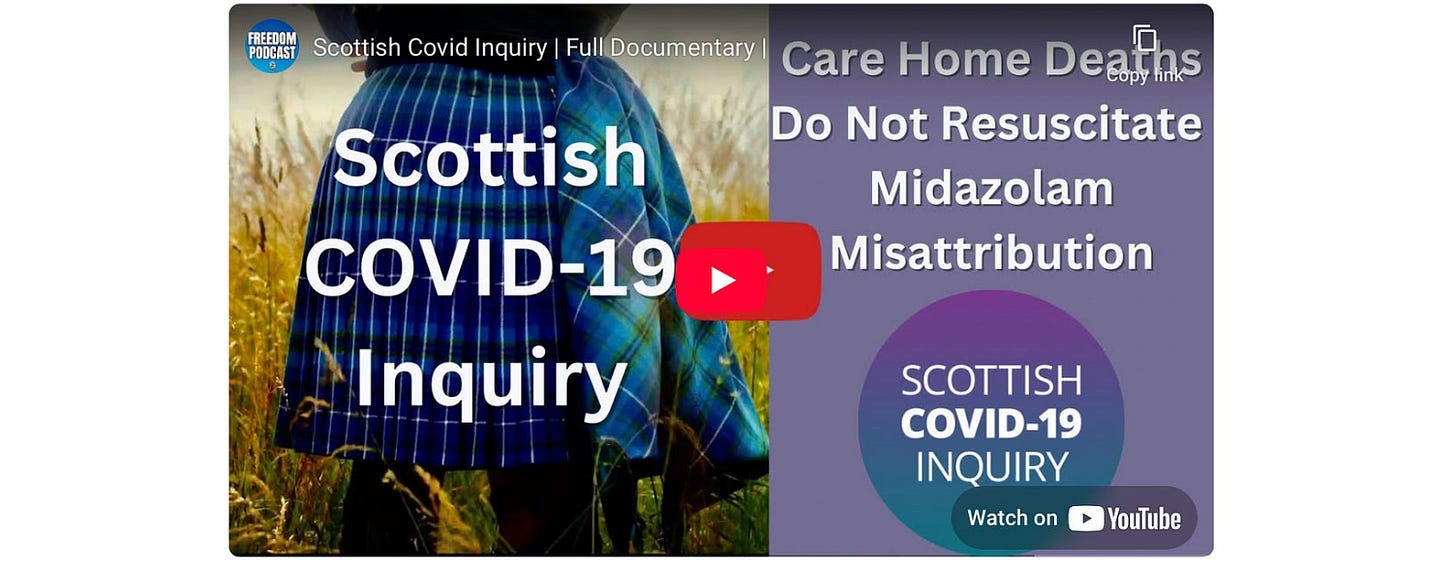

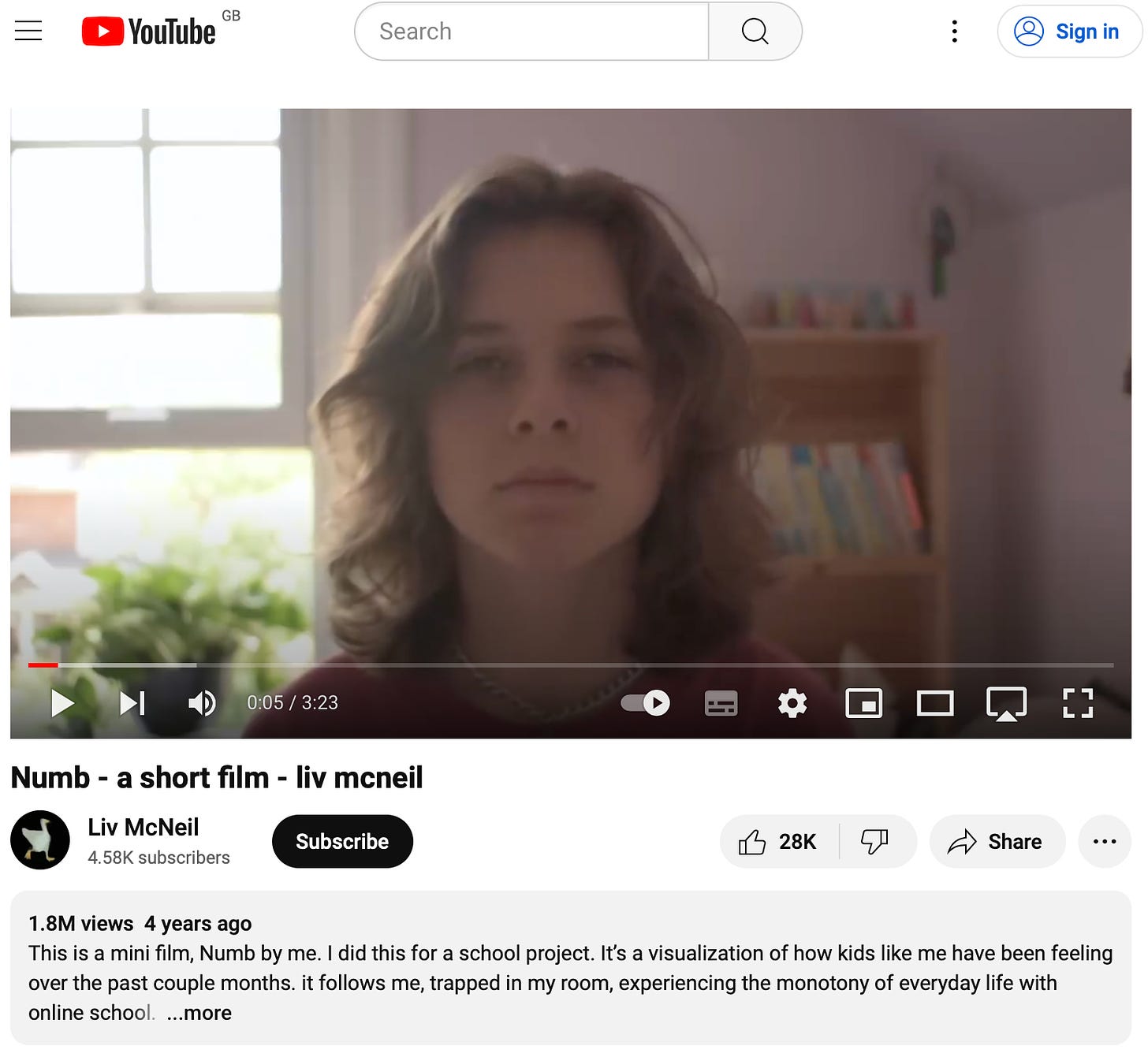


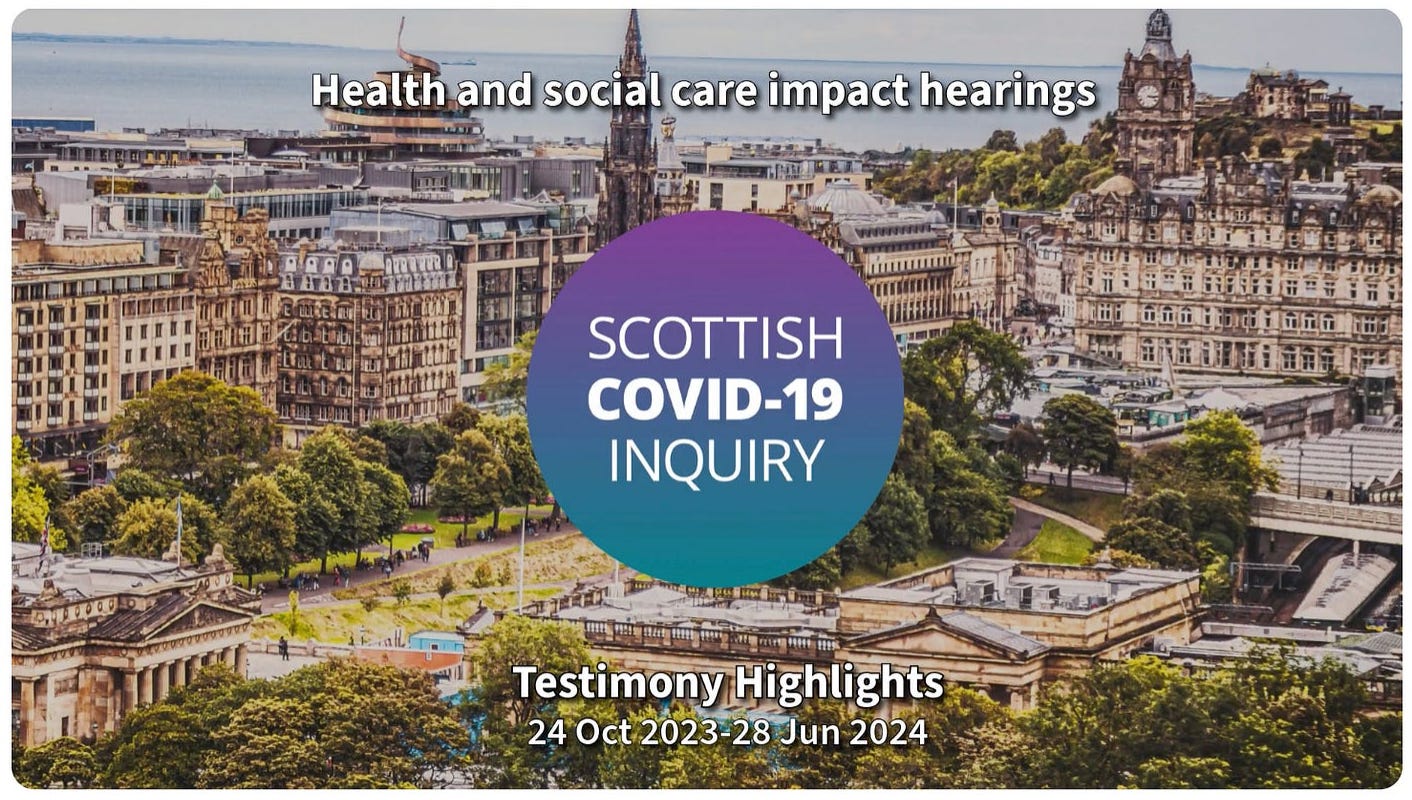











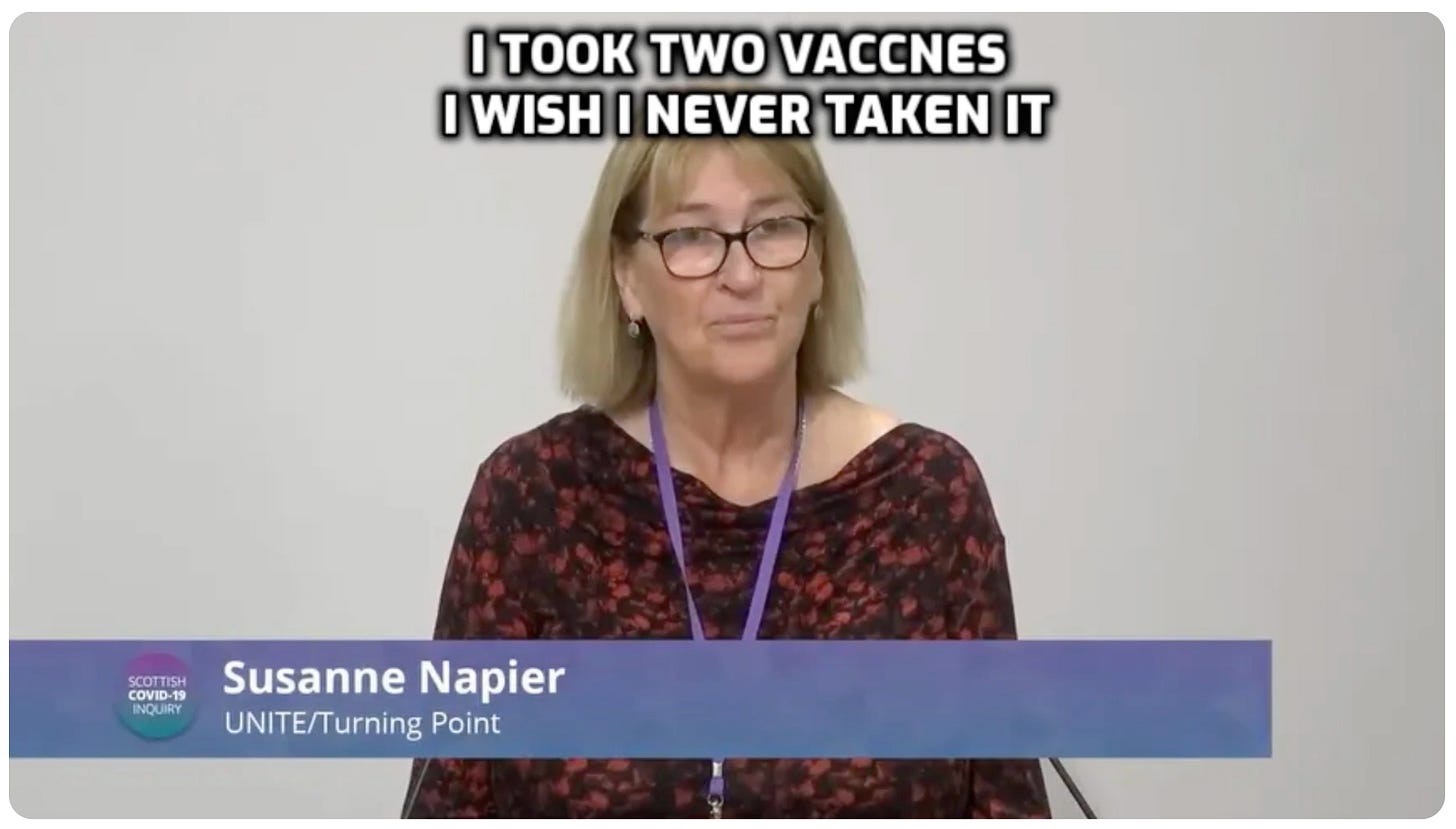
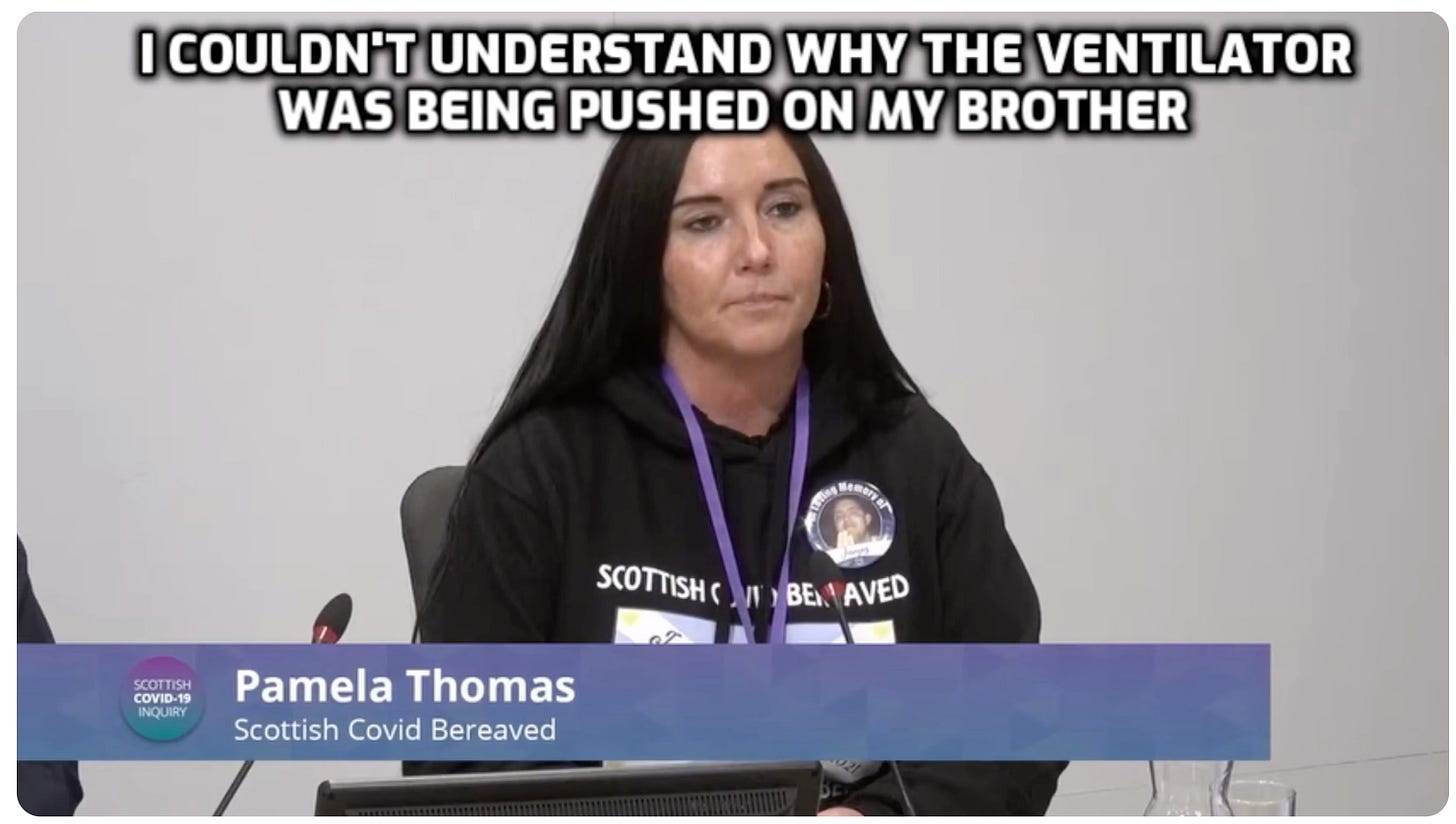





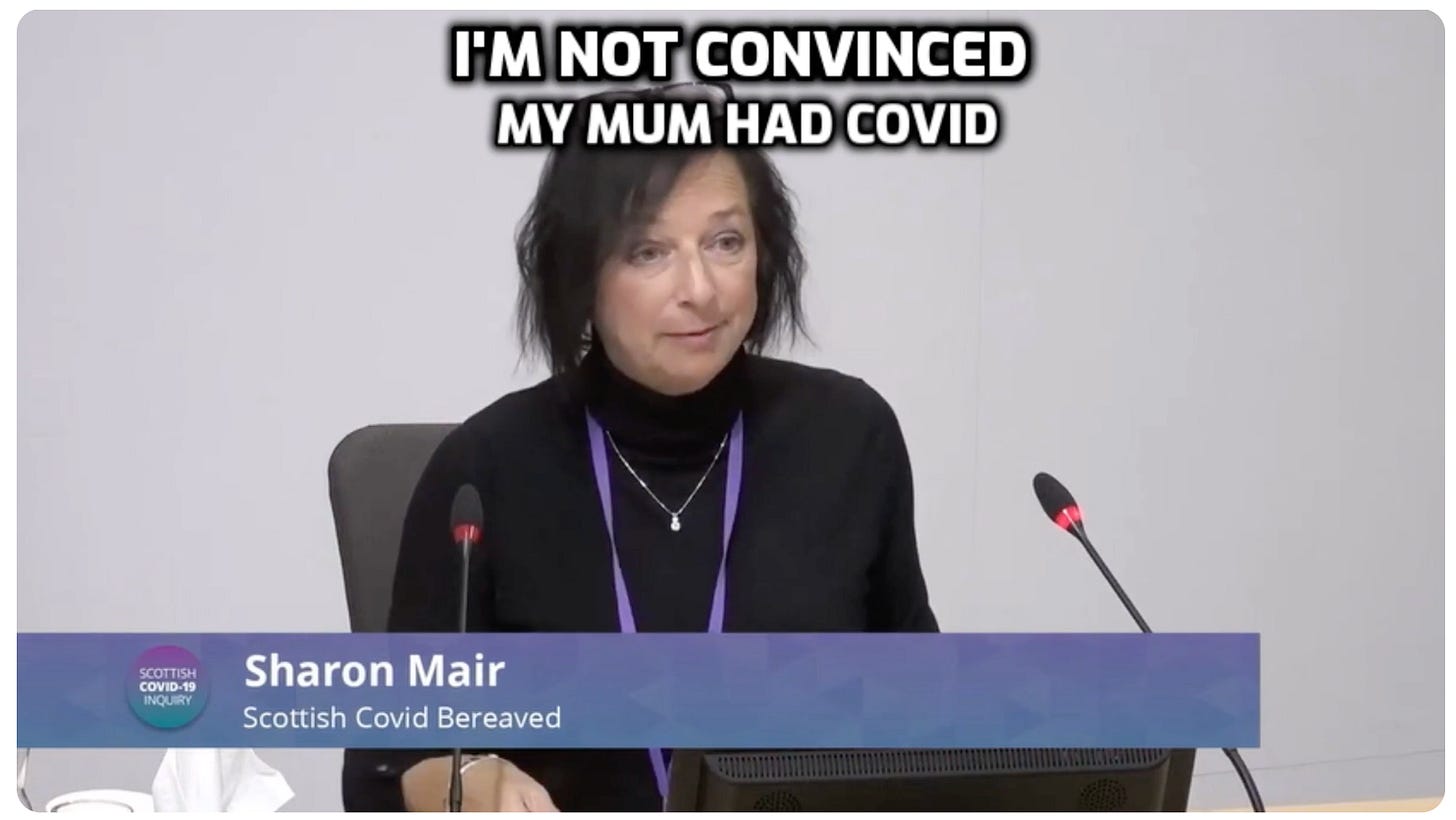

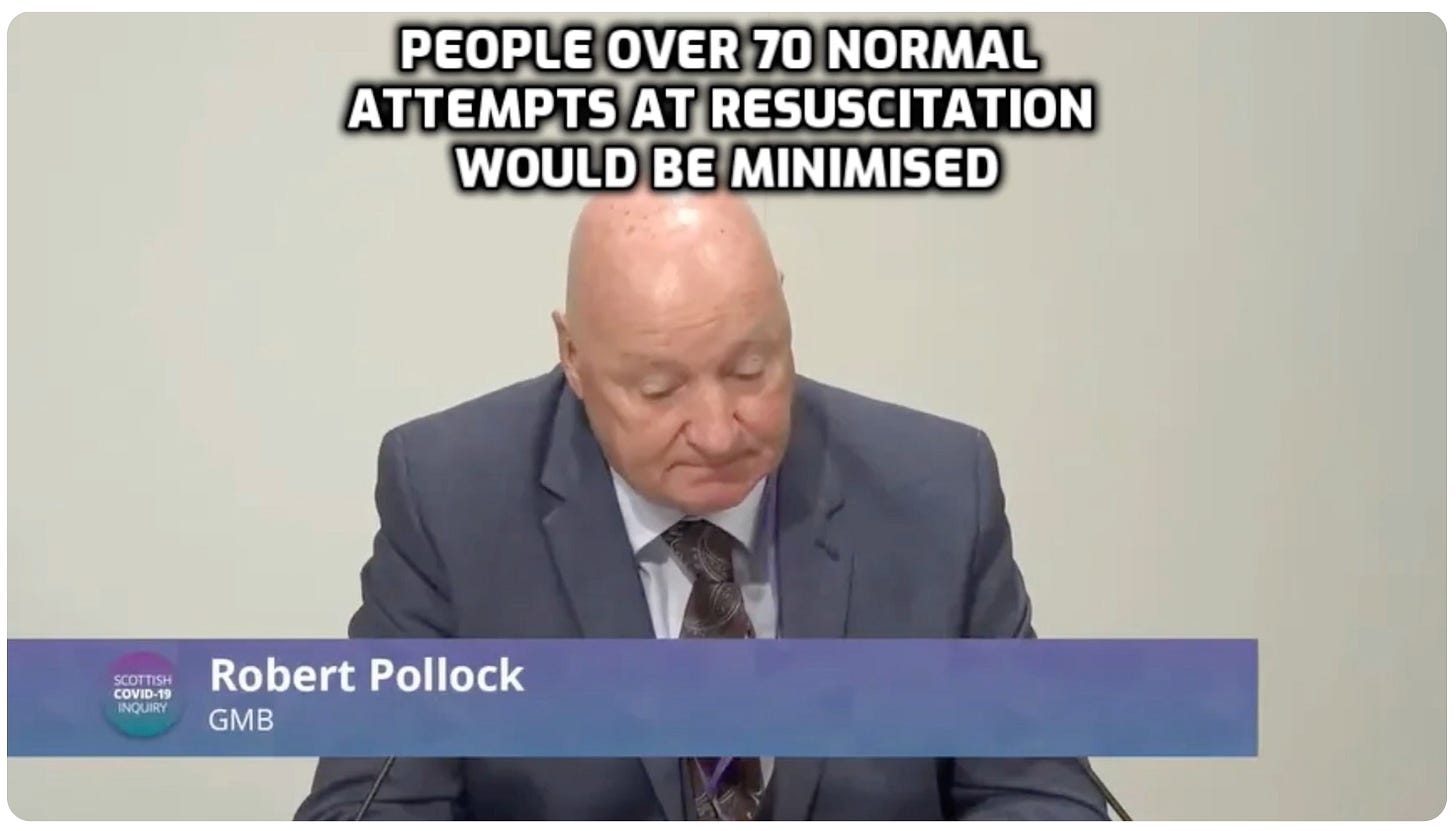





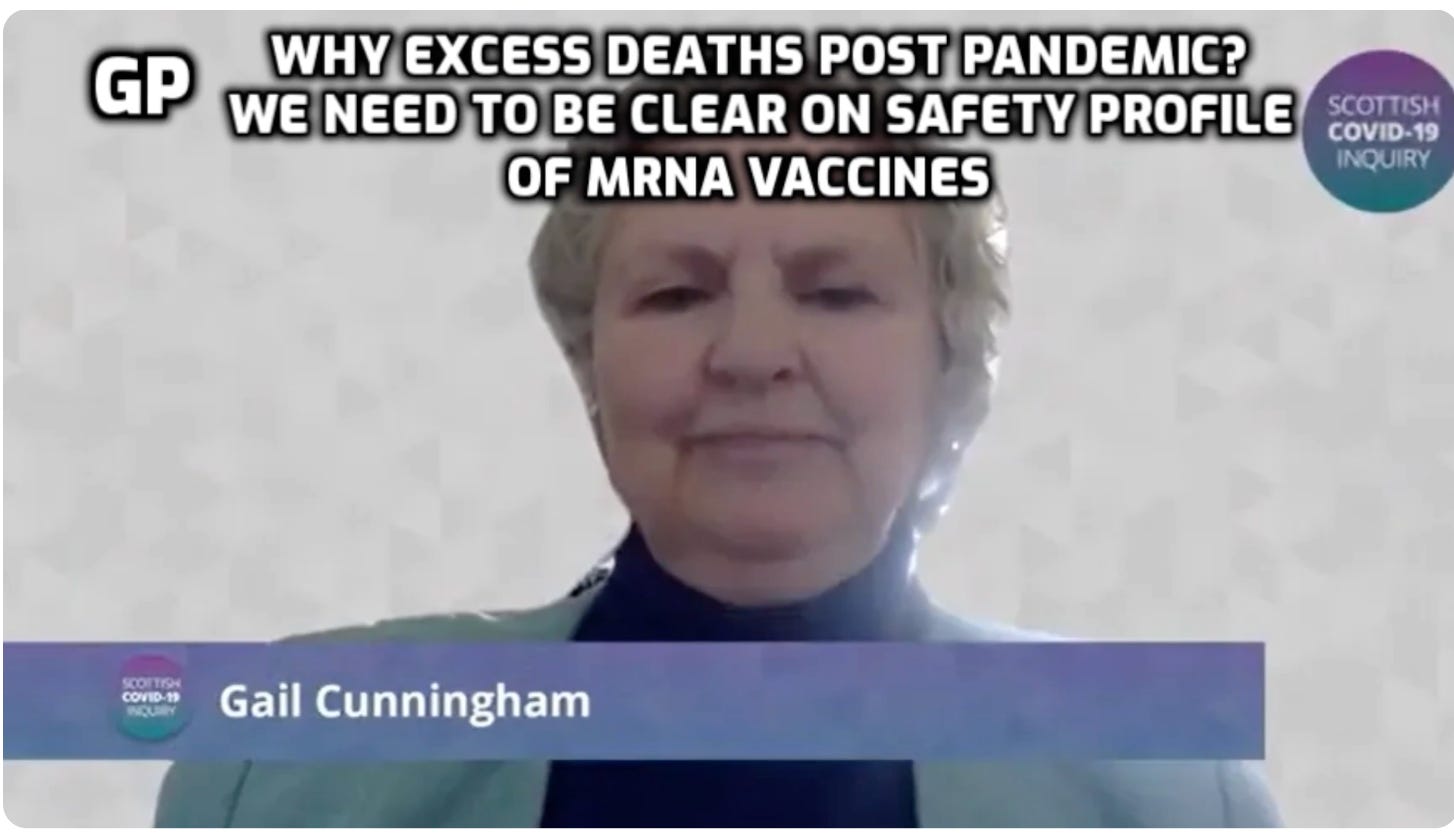












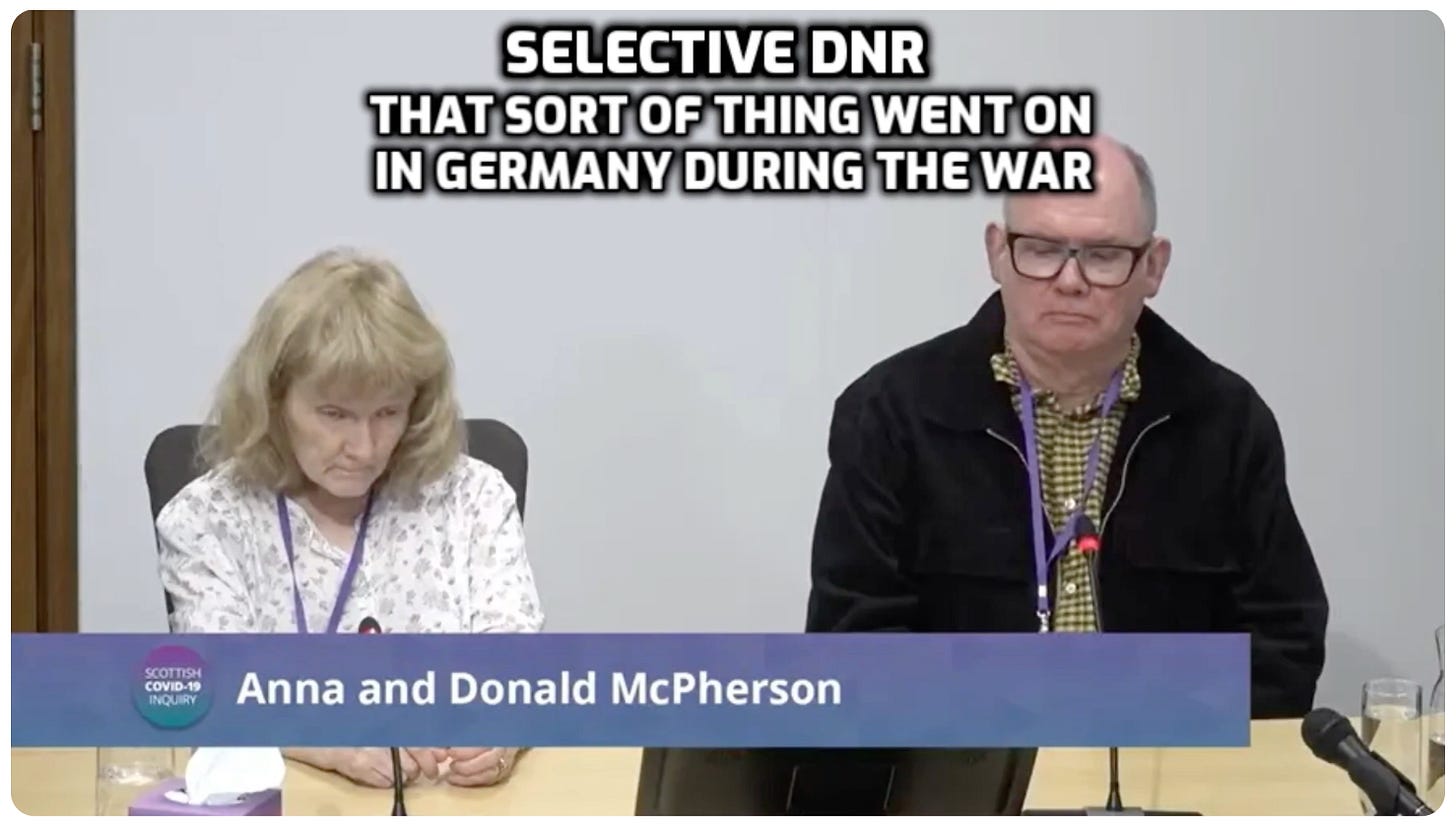
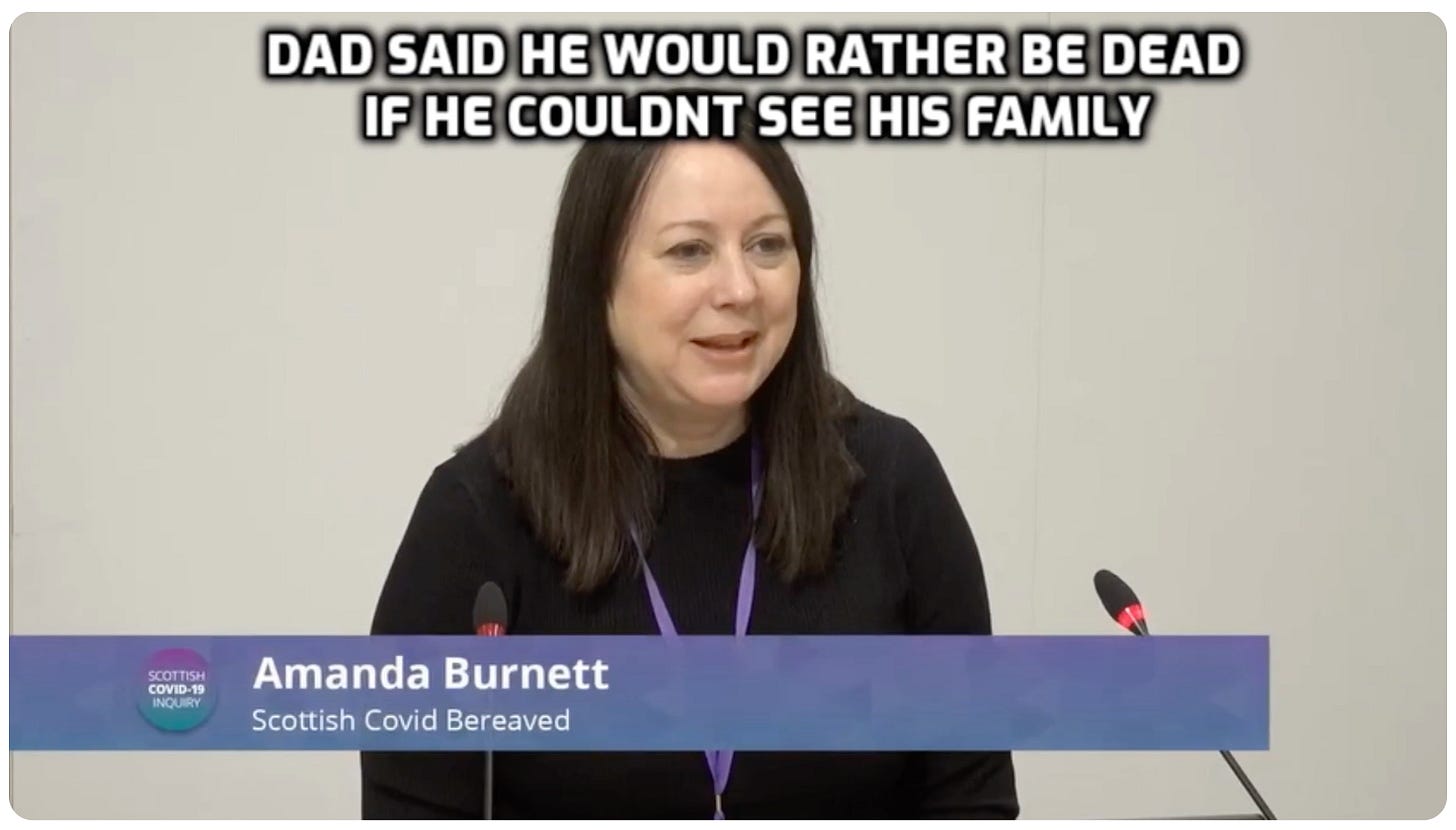


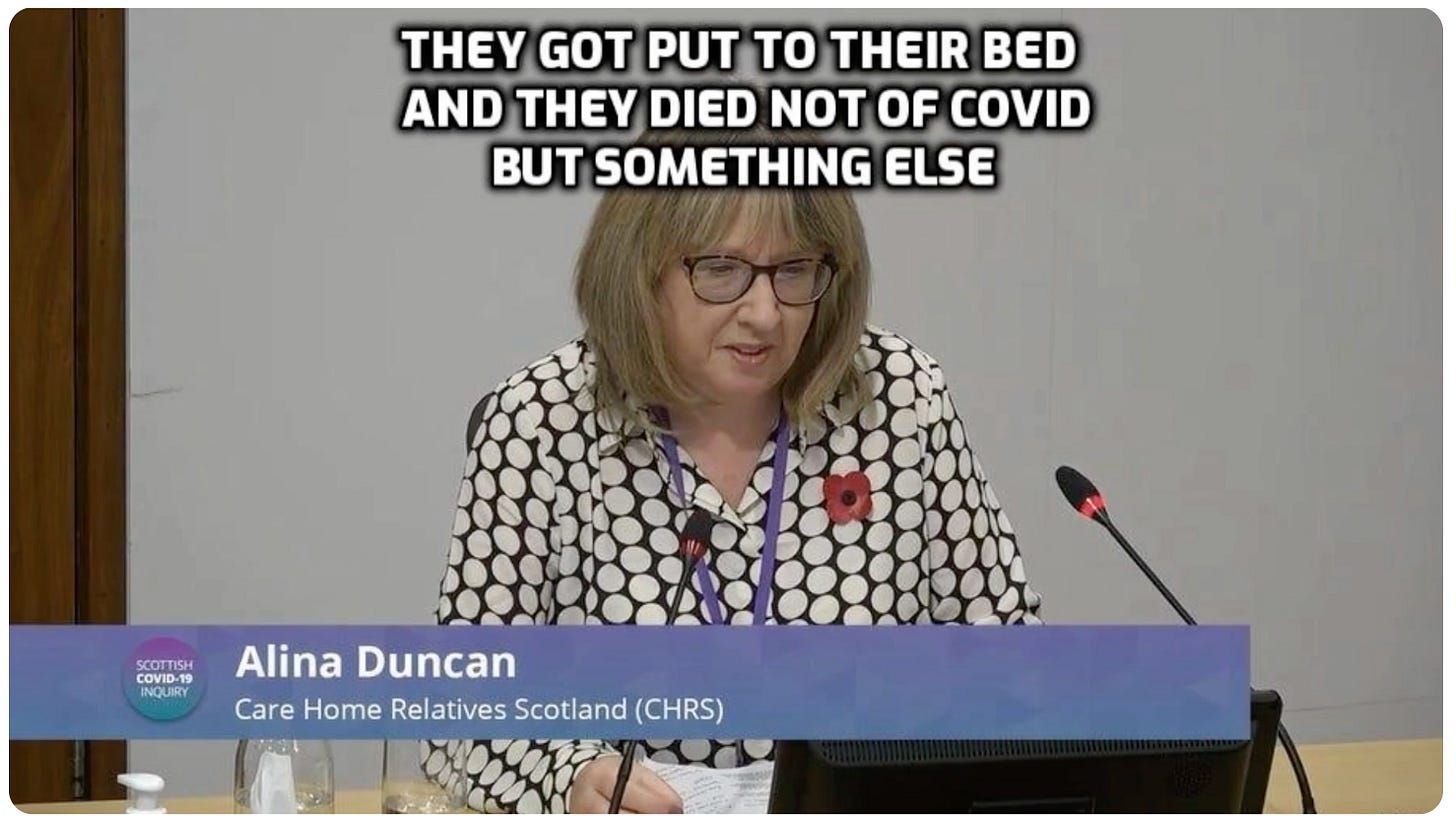

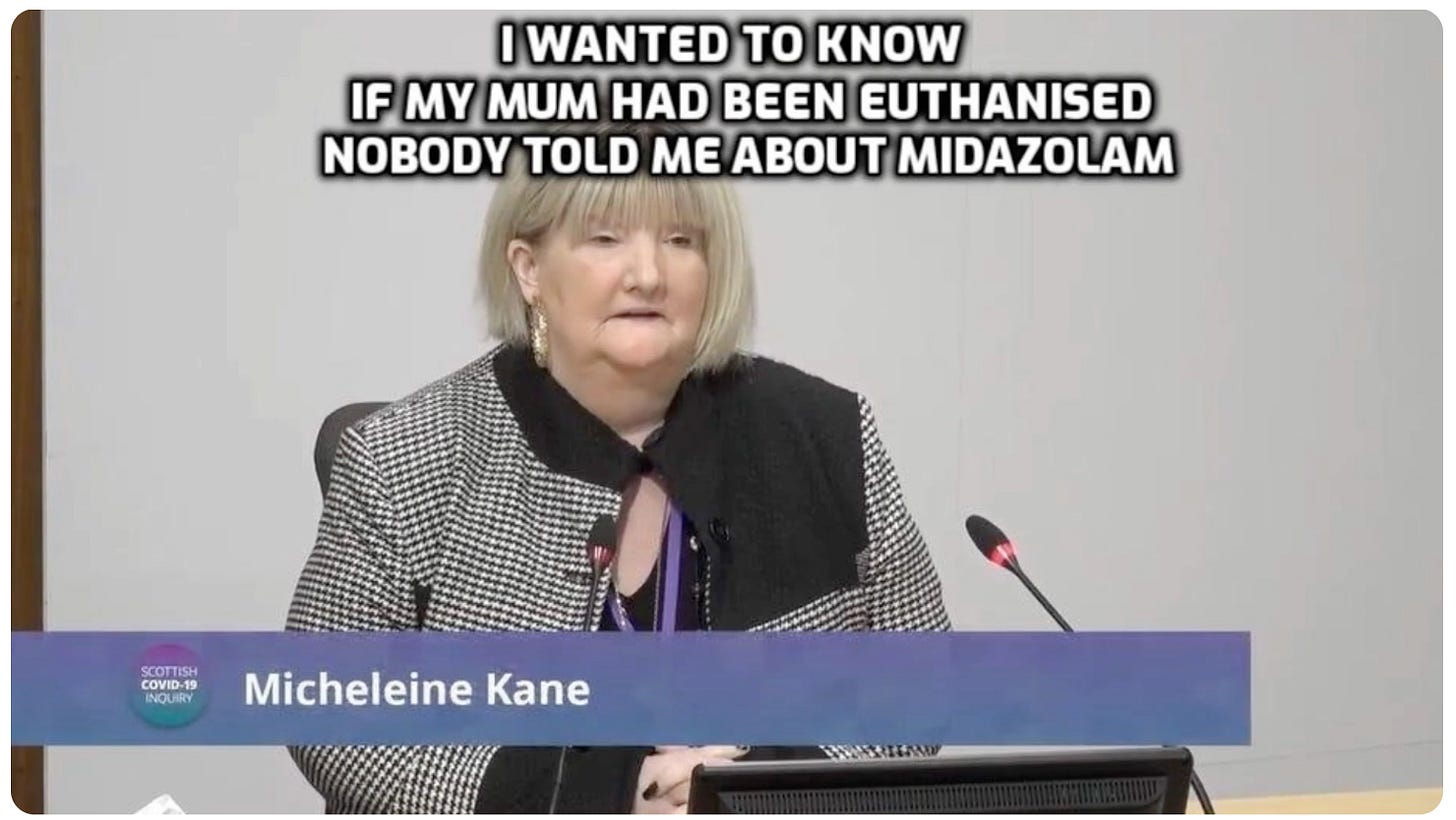



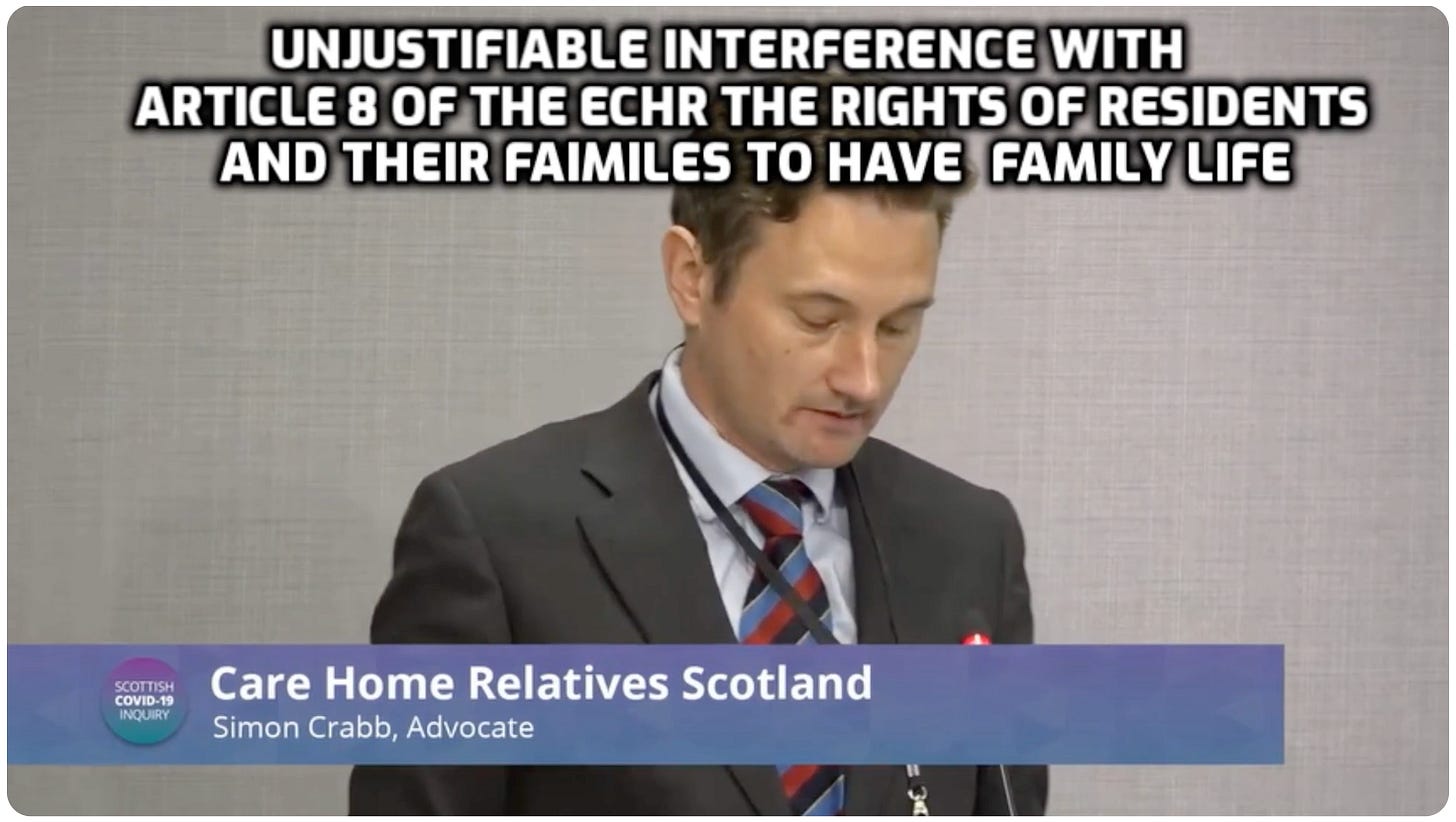














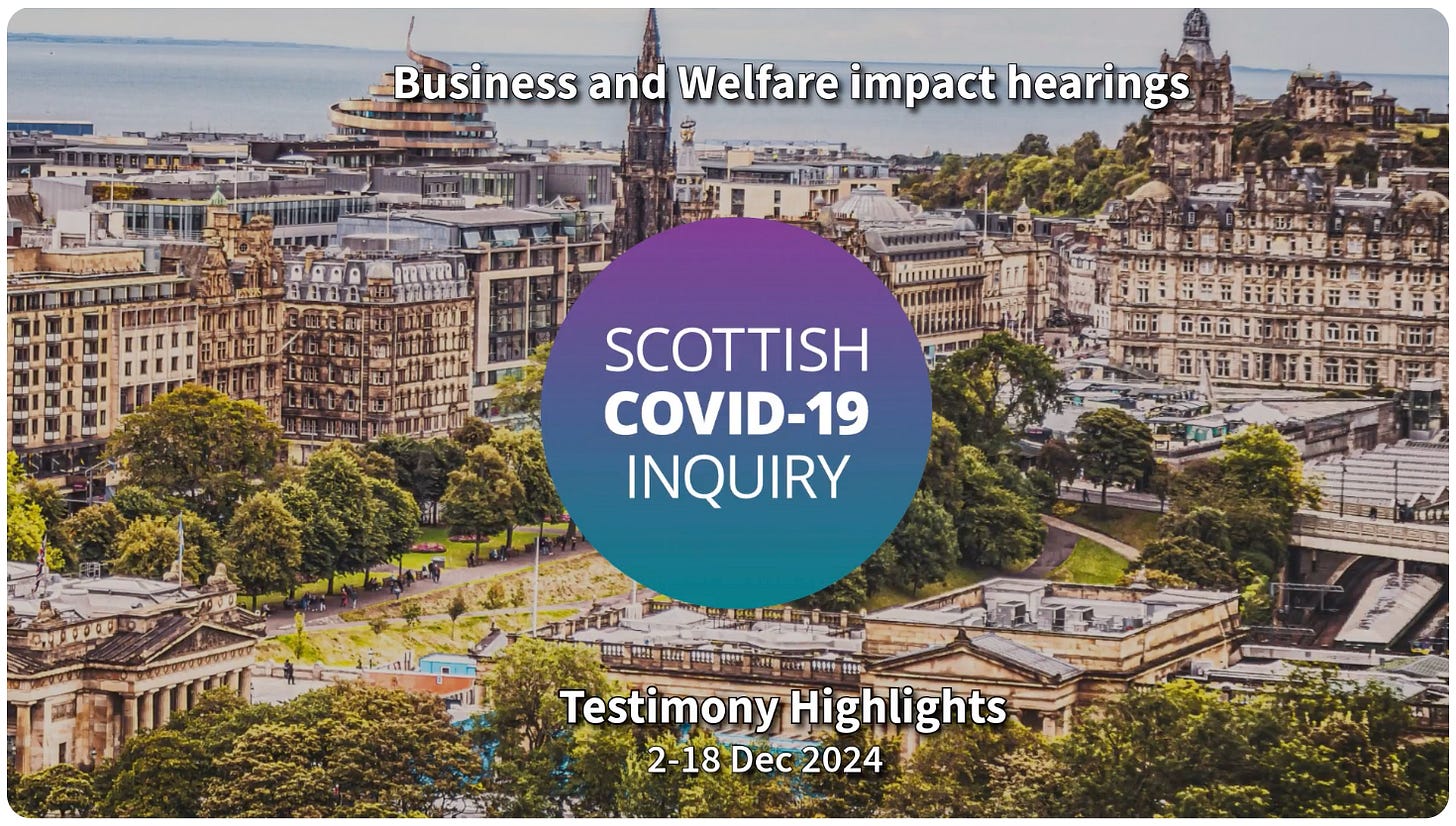
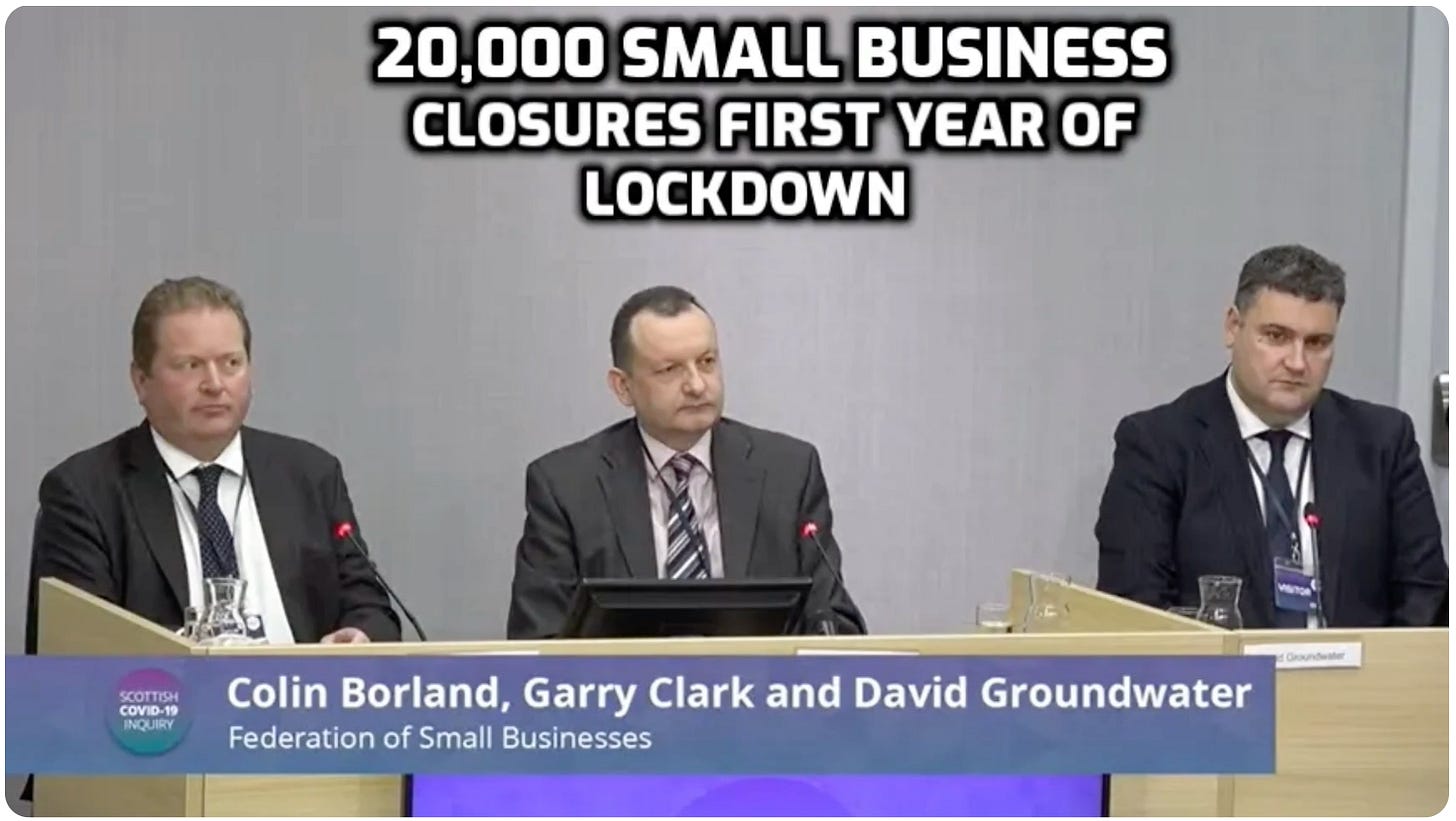

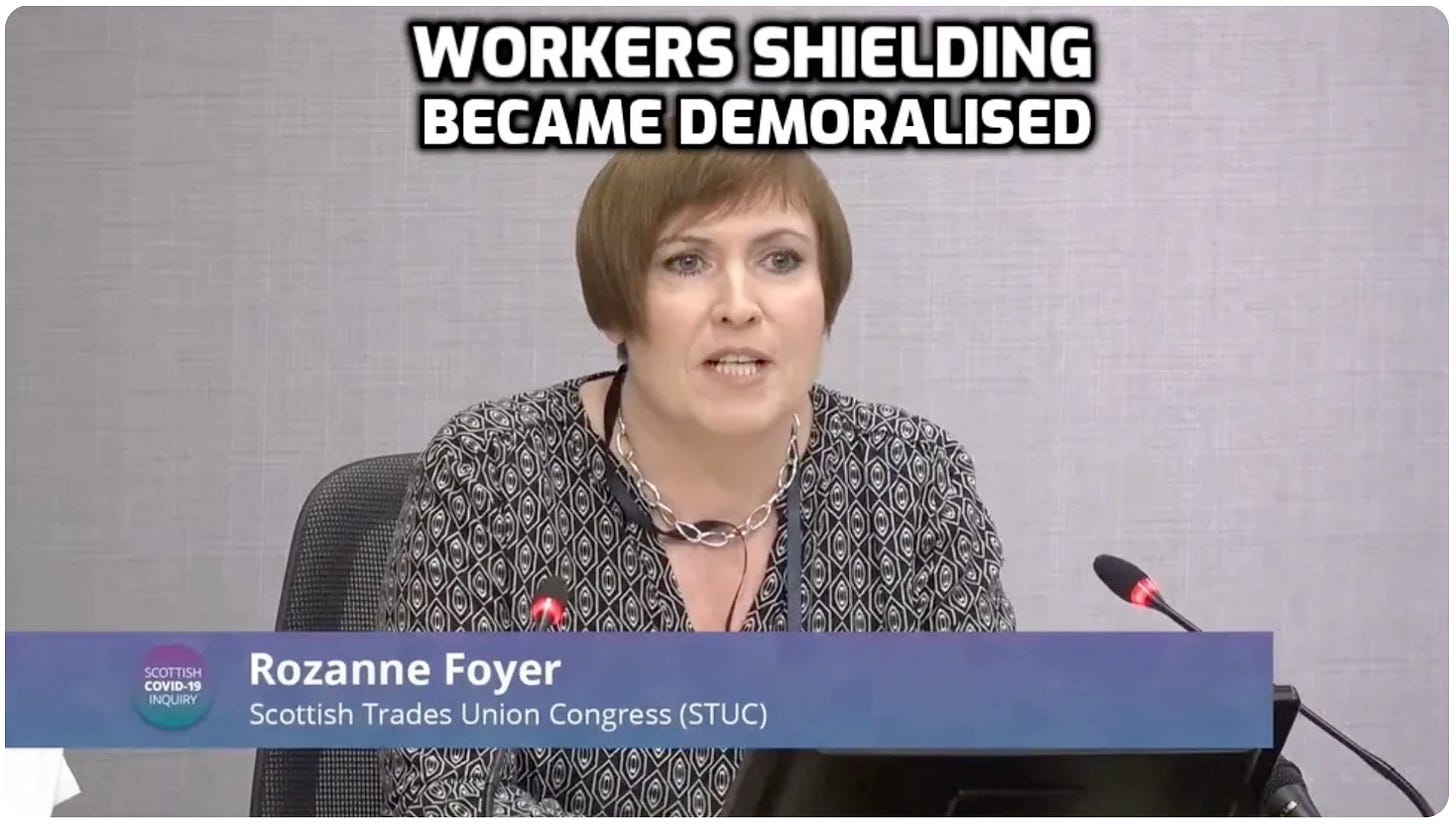











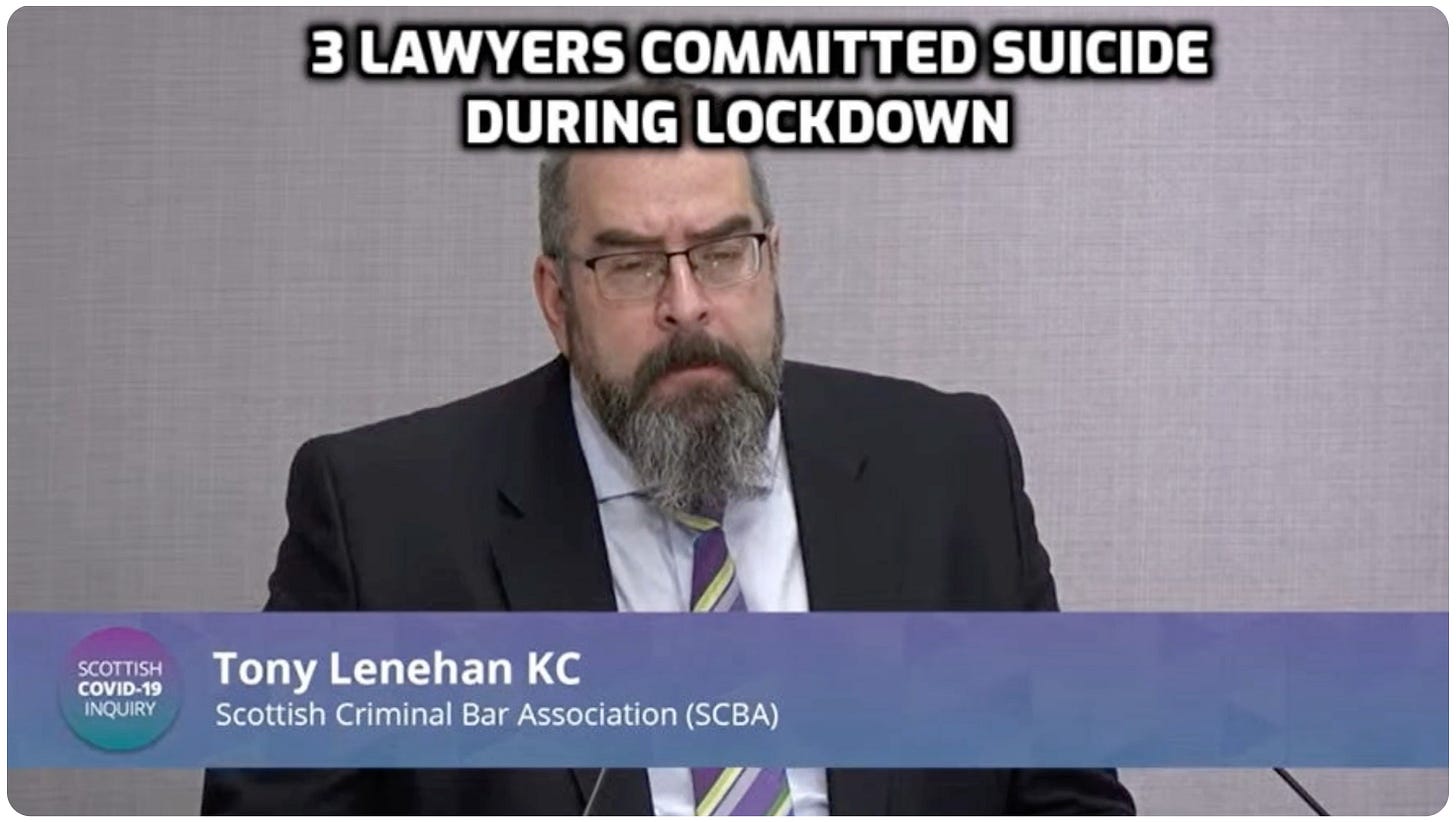




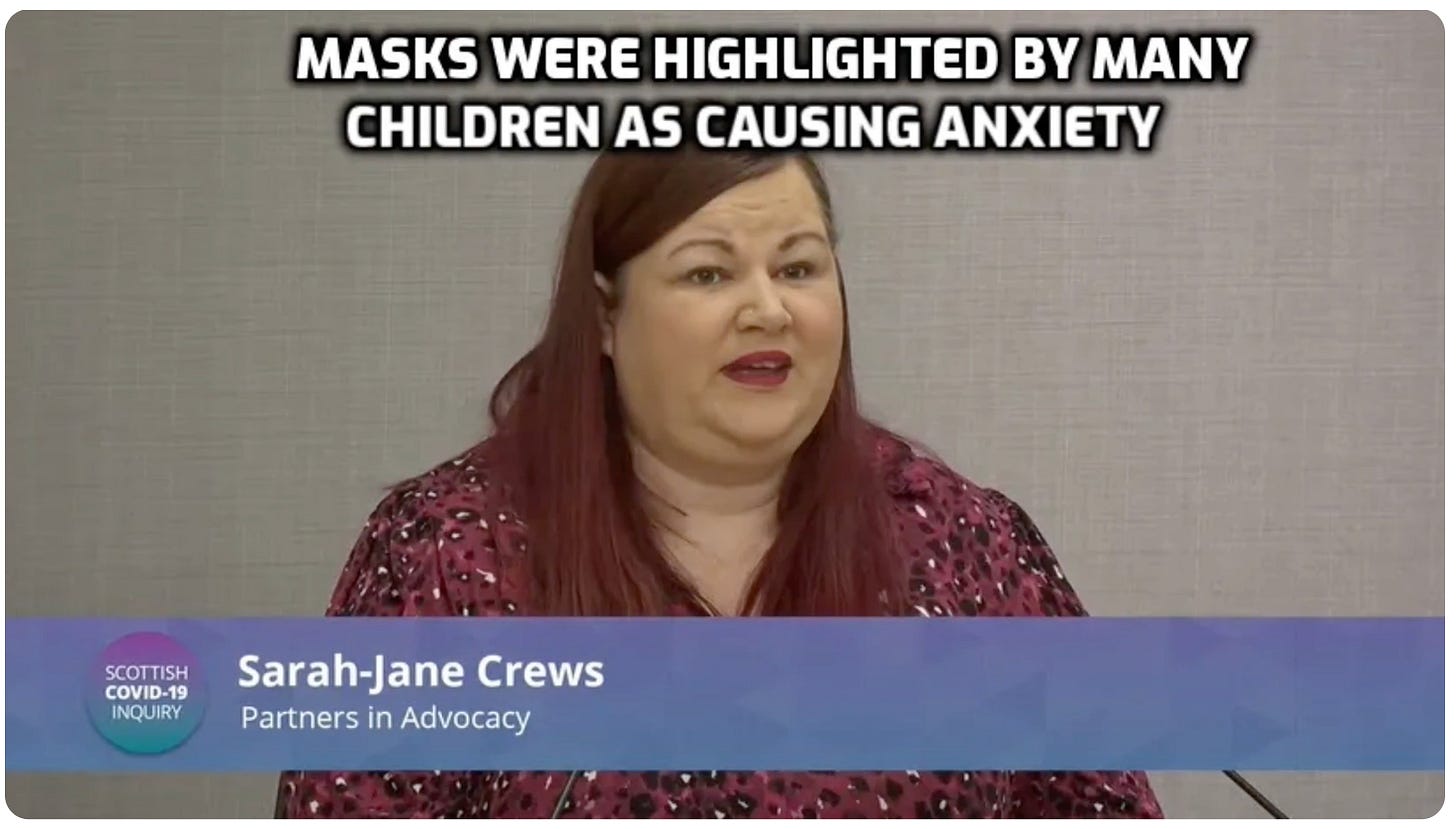













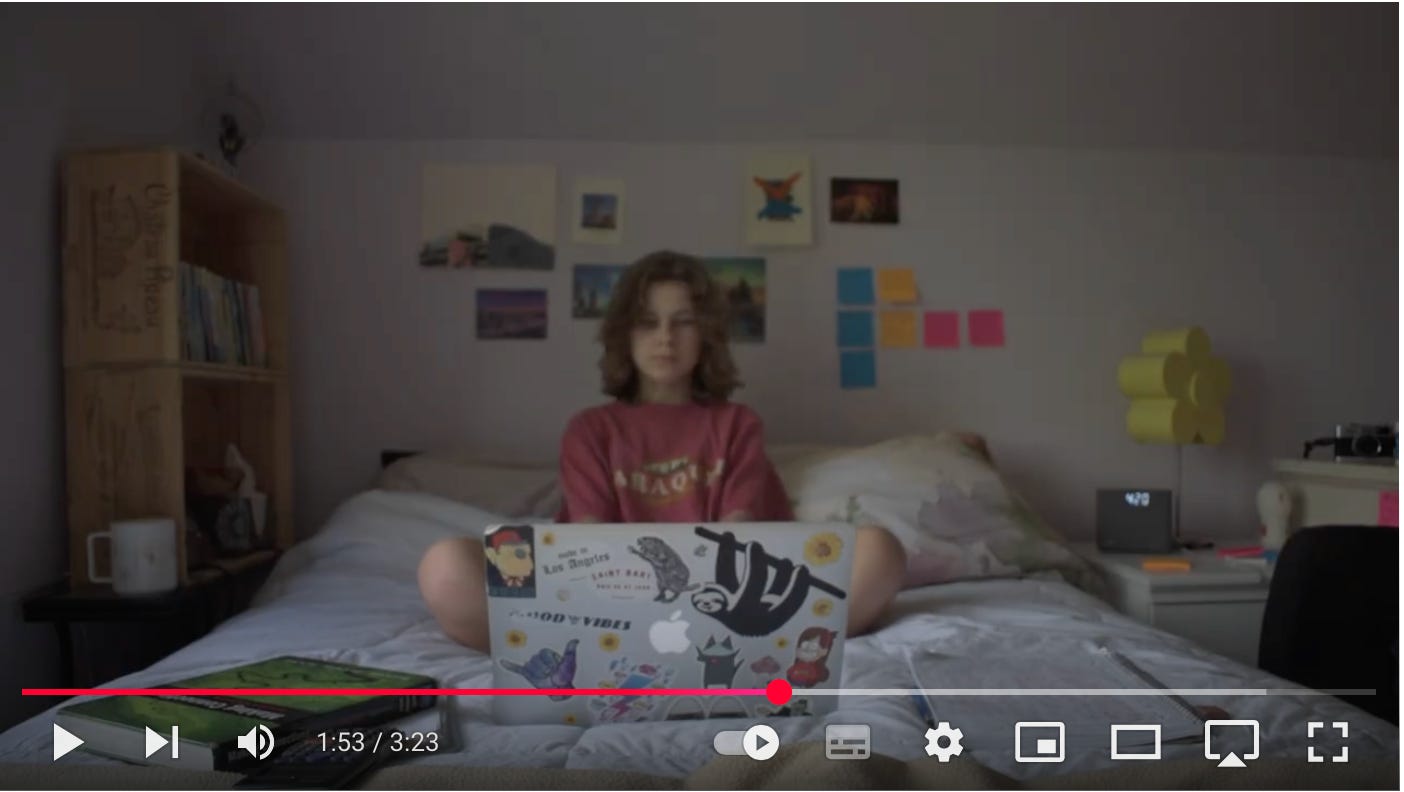

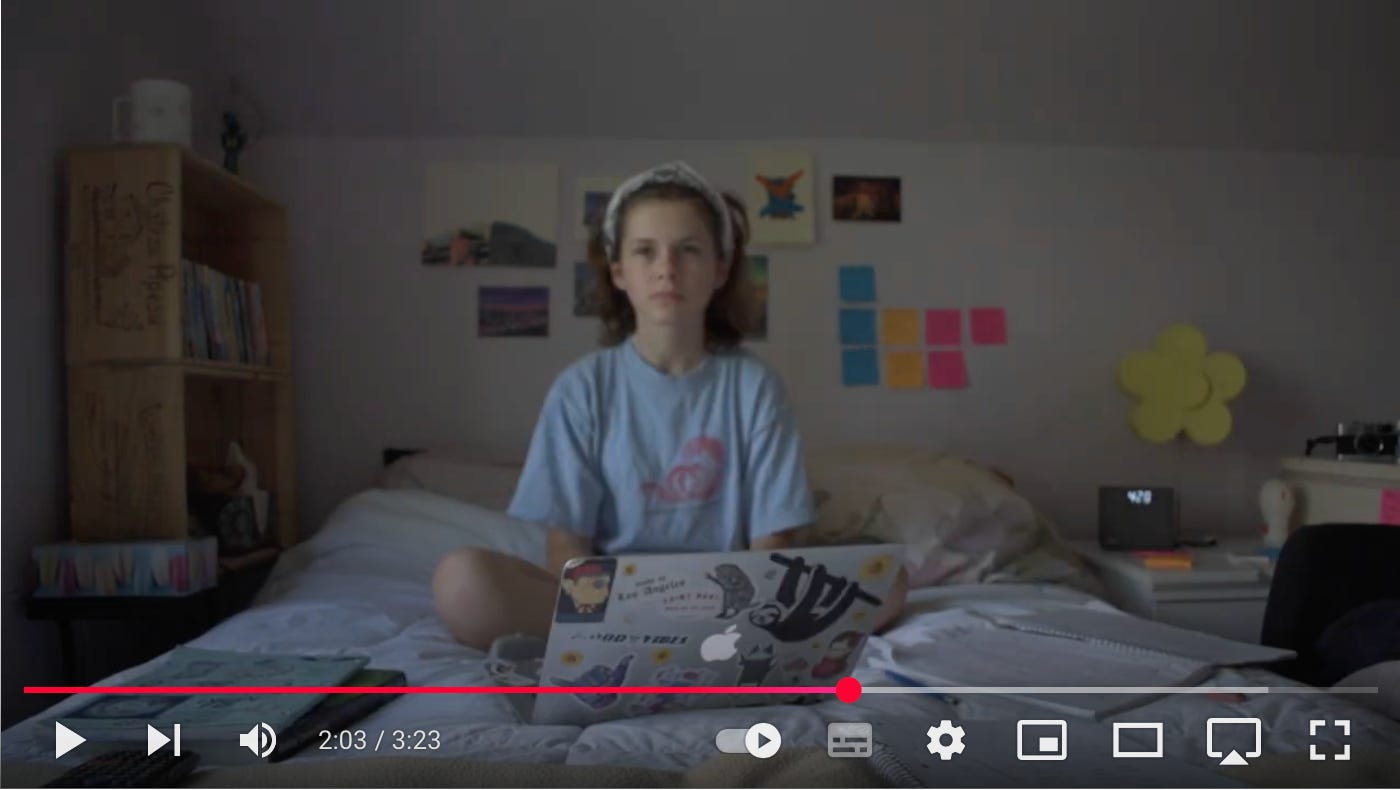

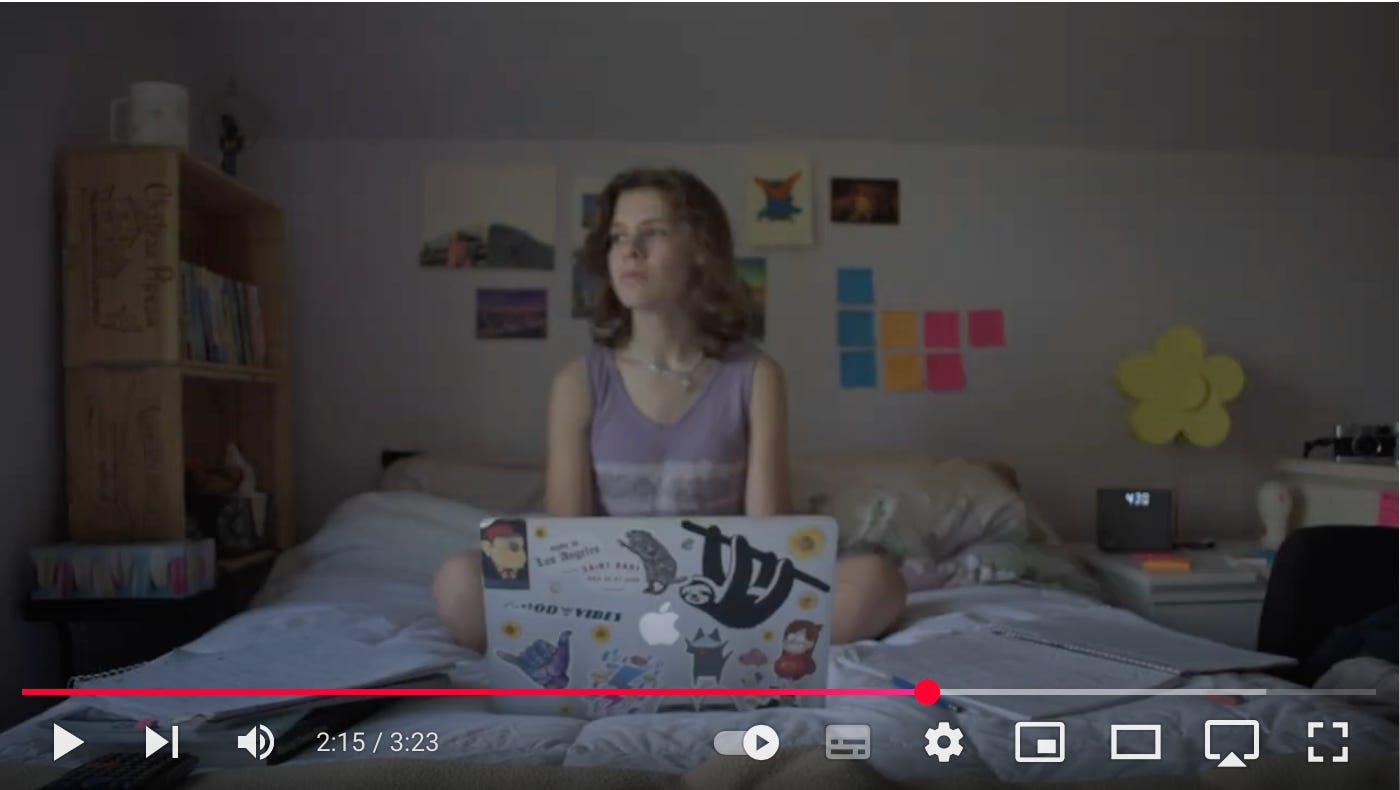







![The Day the Dam Broke [2025 re-issue]](https://substackcdn.com/image/fetch/w_140,h_140,c_fill,f_auto,q_auto:good,fl_progressive:steep,g_auto/https%3A%2F%2Fsubstack-post-media.s3.amazonaws.com%2Fpublic%2Fimages%2Fbf808d68-6fb1-487c-bc39-6d80a22a9d2a_990x792.png)






